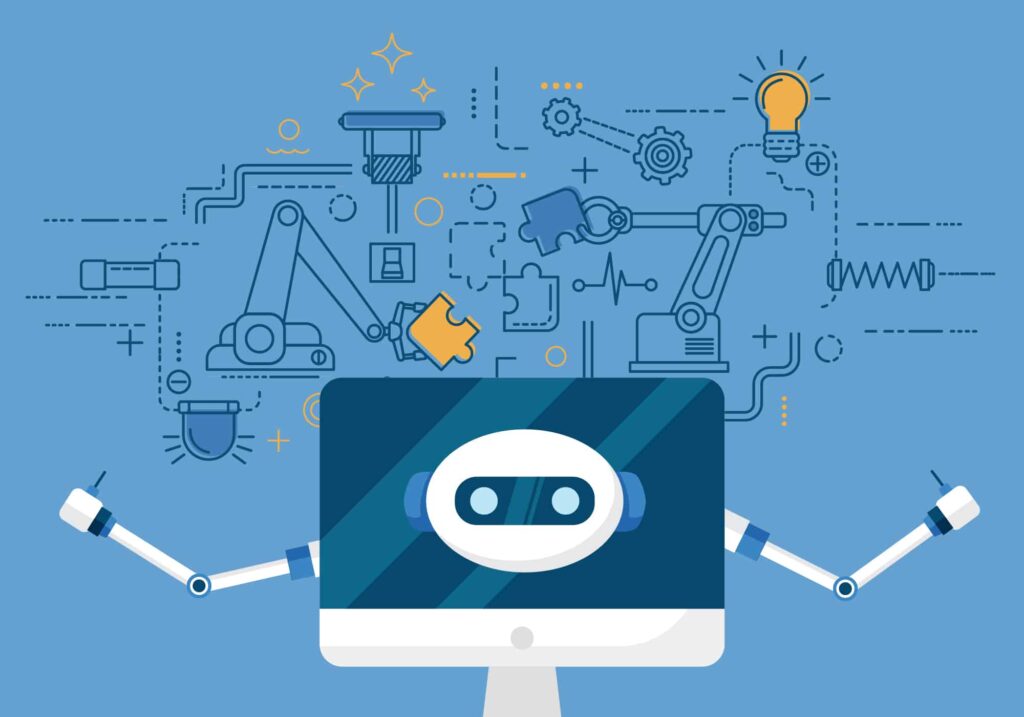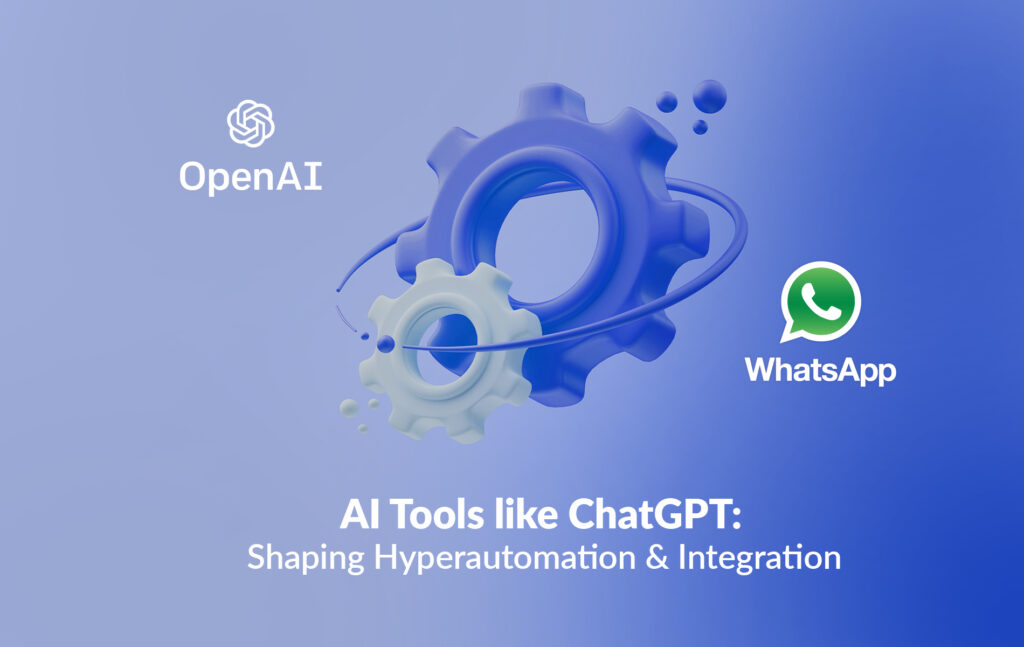As robotics technology continues to advance rapidly, software developers must keep up with the demand for software that controls these highly advanced robotic machines. Although hardware mechanics have improved over time, they still require software to run and perform their intended operations.
According to LinkedIn’s 2020 US Emerging Jobs report, the Robotics Engineering industry is witnessing a surge in demand for engineers with expertise in both hardware and software roles and those working on virtual and physical bots. The report reveals that Robotics Engineering careers offer a wide range of opportunities for professionals with diverse skills and interests.
RPA Developer is also in high demand in 2023 for various reasons, including lower costs, increased speed, accuracy, consistency, quality improvements, and production flexibility. Also, robotic process automation developer is used in various sectors like Banking and finance process automation, e-commerce, Customer Care and many more.
Based on a Gartner report, the worldwide revenue generated by Robotic Process Automation (RPA) software is predicted to surge by approximately 20% and exceed US$1,888.1 million by the end of 2021. Despite the economic challenges triggered by COVID-19, the expansion of the RPA market is projected to remain robust, and it is expected to maintain a growth rate in the double digits until 2024.
What is an RPA Developer?
Using Artificial Intelligence and Machine Learning algorithms, RPA technology automates complex and unneeded business tasks. It allows your software applications to work on any website or application. It lets you keep records, calculations, and business transactions. Today almost every industry uses RPA in its business to increase efficiency, reduce cost, and reduce human resources. So, every industry is looking for a robotic process automation RPA developer who can help to work in automated systems.
Skills and qualifications of an RPA developer
Becoming an RPA developer is open to anyone with a passion for software and application development. While an engineering degree in computer science is the primary educational requirement, the curriculum does not cover all the essential skills necessary to become a proficient RPA developer. As a result, completing certification courses offered by reputable institutions is recommended to improve one’s knowledge and develop superior RPA development skills.
- Analysis and Problem Solving
A strong background in business analysis is generally required as a significant part of the job involves analysing internal processes and identifying opportunities for automation. Additionally, problem-solving skills are essential for successfully utilising RPA to optimise budgeting and productivity and solve business problems. Candidates with experience in business development and RPA are particularly sought after in this regard.
- Effective Communication and UX Principle
Effective communication skills are also crucial, as RPA developers must be able to communicate effectively with end-users, development teams, and other stakeholders in order to integrate automation into business workflows successfully. Furthermore, understanding UX principles is vital for ensuring that bots are intuitive and user-friendly for non-technical business users.
- Programming Language and Technical Skills
Process mining proficiency is another key skill required for many RPA-related roles, and a solid understanding of programming languages and frameworks is also essential.
- Python is the most in-demand scripting language for RPA, followed by Visual Basic, which is used by some major RPA and hyperautomation vendors.
- C/C# are also commonly used for building desktop RPA software, while .NET/ASP.NET are popular frameworks for writing RPA software in C/C# that can be used for building both web and desktop cross-platform applications.
- JavaScript is often required for web-based RPA development and is also used in conjunction with Visual Basic in the automation ecosystem. By possessing a strong foundation in these key areas, aspiring RPA developers can position themselves for success in this exciting and rapidly growing field.
- Retrieving historical data from company archives is a crucial task for RPA developers to gain a comprehensive understanding of organisational dynamics. To achieve this, the use of SQL servers is recommended, as automation bots can easily comprehend SQL queries. By employing SQL servers, the process of data retrieval becomes more efficient and facilitates smoother data analysis. Hence, having a thorough grasp of SQL querying is essential for RPA developers. It enables them to extract data effectively, enabling them to perform better data analytics and subsequently improve automation outcomes.
- Experienced With RPA Tools
While most companies adopt standard solutions from RPA providers, such as Autom Mate, it’s still necessary to have a thorough understanding of these tools to implement and maintain them effectively. Even senior positions require experience with these technologies.
- Cloud Technology
Aside from RPA-specific skills, cloud technology knowledge is becoming increasingly important. Most software businesses use cloud infrastructure, and while it’s not an RPA-specific skill, having experience with AWS or Azure is often required to deploy bots in the cloud.
Businesses are rapidly shifting from on-premises to cloud-based deployment for cost efficiency in infrastructure and maintenance, automatic upgrades, and real-time data accessibility. RPA cloud deployment is expected to grow by 34% from 2021 to 2028.
- Machine Learning Expertise
Another skill that’s becoming more valuable is machine learning expertise. While RPA automates simple processes, it has evolved into a new branch of technology called Cognitive Automation. This mix of machine learning, artificial intelligence, and RPA extends the capabilities of traditional bots. However, machine learning is a complex field that requires dedicated professionals to carry out activities concerning model training. It’s rare for a single person to have a background in software development, RPA, and machine learning.
Autom Mate offers a user-friendly interface with a drag-and-drop feature, making it easy for citizen developers to create workflows visually. With the help of pre-built templates and customisable components, Autom Mate empowers citizen developers to automate repetitive and time-consuming tasks quickly.
Tasks and Responsibilities of an RPA Developer
RPA Developers play a critical role in the development and implementation of RPA systems. Their responsibilities encompass designing, building, and analysing automated processes using various RPA tools and technologies. They scrutinise and assess the processes to determine their suitability for automation and use this knowledge to develop the necessary automation.
- RPA Developers write scripts and code using RPA tools to resolve automation issues and review the design and code to ensure optimal system development and integration.
- RPA Developers must be proficient in configuring new automation using user-friendly tools and documenting automation procedures. They must also identify and design business processes for automation, testing and monitoring automated workflows for optimum efficiency and accuracy, and maintaining automation post-implementation by resolving potential issues.
- To ensure that the automation system is of high quality, RPA Developers must follow Quality Assurance processes to prevent potential bugs. They must work with Market Analysts and SMEs to classify processes and determine their viability and perform Proof of Concepts to demonstrate the effectiveness of automated solutions.
- Additionally, RPA Developers must define and communicate the conditions for applying technologies, support Project Managers regarding ongoing activities, and enforce transition criteria as part of a formal change management mechanism. They must manage and distribute process workloads, research exemptions, attend meetings to discuss progress and challenges with the solution, and stay abreast of current technologies to advise the organisation on their use.
Benefits and Challenges of Being an RPA Developer
With the growing demand for RPA solutions, RPA developers have become a valuable asset to companies looking to streamline their operations.
Benefits of Being an RPA Developer
- Flexibility: One of the significant benefits of being an RPA developer is the flexibility it offers. RPA developers can work remotely and choose their work hours, making it an attractive career option for those looking for work-life balance.
- Creativity: RPA developers get to work on various projects that require creative problem-solving skills. This allows them to develop unique solutions to automate complex business processes.
- Job Satisfaction: RPA developers can experience a sense of accomplishment and job satisfaction when they successfully automate a process, resulting in increased efficiency and productivity for the organisation.
- Income Potential: RPA developers are in high demand, and their skills are highly valued. As a result, they can earn a competitive salary and have good income potential.
Challenges of being an RPA Developer:
- Complexity: RPA solutions can be complex, requiring in-depth knowledge of programming languages and RPA tools. Developers may need to spend significant time troubleshooting and debugging issues.
- Security: RPA solutions often handle sensitive data, which presents security concerns. RPA developers must ensure that the systems they build are secure and protect against potential breaches.
- Scalability: RPA solutions must be scalable to meet the needs of a growing organisation. Developers must design systems that can handle increased workloads without sacrificing performance.
- Maintenance: RPA solutions require regular maintenance to ensure optimal performance. Developers must be prepared to troubleshoot and resolve issues that arise, which can be time-consuming.
Become an RPA Developer with Autom Mate
The rapid development of technology has presented a unique opportunity for businesses to undergo digital transformation and gain a competitive advantage in the market. As an RPA Developer, it is possible to help businesses realise digital transformation by developing and implementing RPA systems tailored to their needs.
At Autom Mate, we offer comprehensive capabilities that equip you with the skills to become a citizen RPA Developer. Our program encompasses a variety of RPA tools and technologies, allowing you to easily create, design, and analyse automated processes. You can also learn how to identify business processes suitable for automation, set up, test and monitor automated workflows, and maintain post-implementation automation.
Being an RPA Developer is an excellent career choice in 2023 as businesses continue to look for ways to optimise their operations and gain a competitive advantage. If you want to learn more about becoming an RPA Developer or using Autom Mate for your automation needs, visit our website at autommate.com today. Let us help you start your career in the exciting world of RPA!





